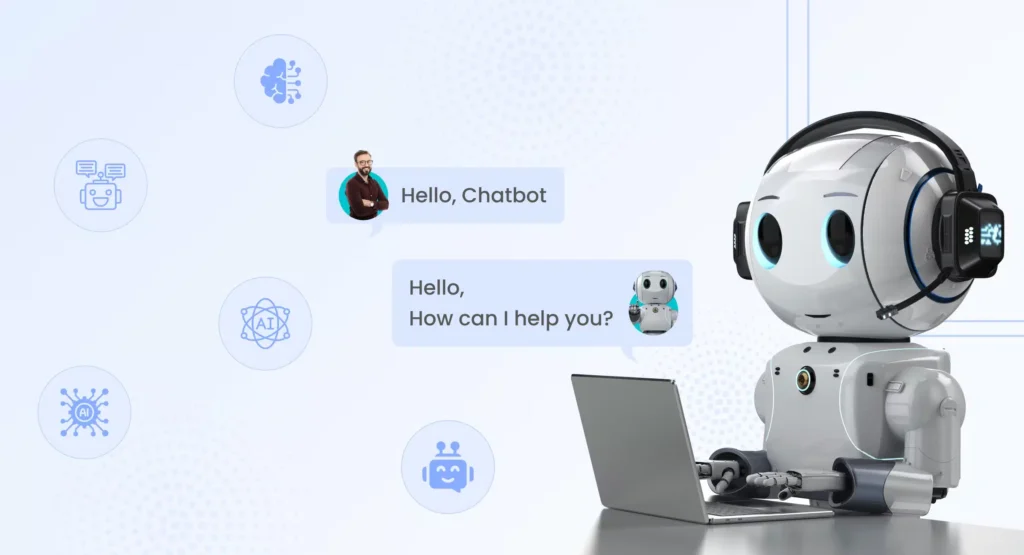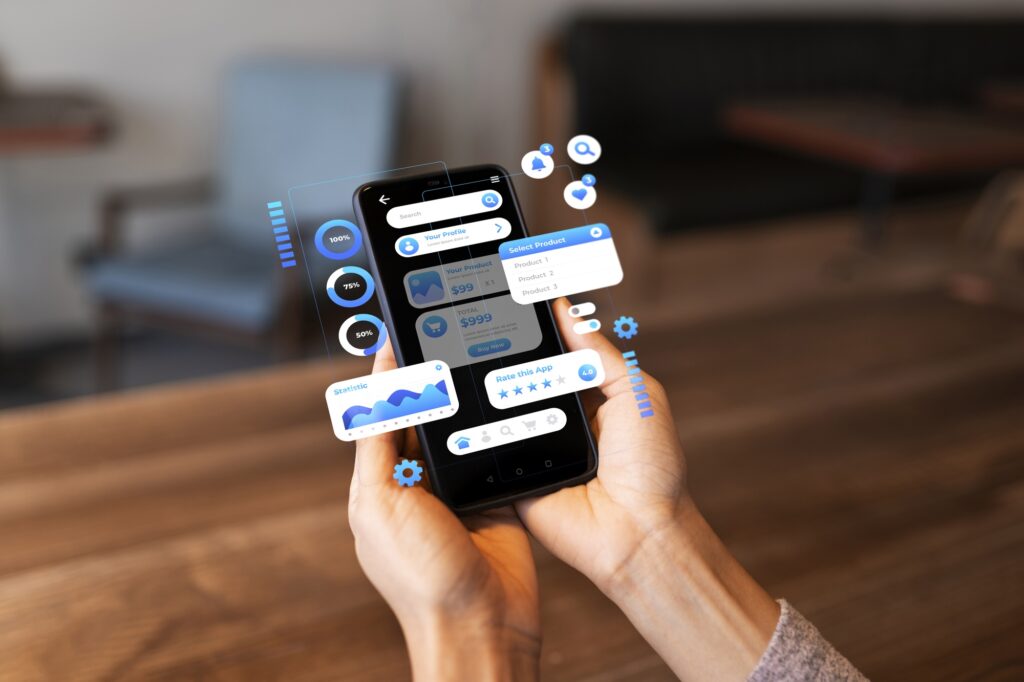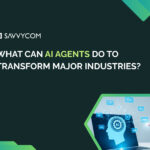How Personalized Chatbots Are Transforming Businesses – The Future of Customer Engagement
As businesses navigate the digital landscape, customer expectations continue to evolve. Generic, one-size-fits-all chatbot solutions no longer suffice – consumers demand more tailored, intuitive interactions. This shift has fueled the rise of personalized chatbots, AI-driven assistants designed to adapt to individual user preferences, behaviors, and needs.
Companies that integrate personalized chatbots effectively are seeing significant improvements in customer satisfaction, operational efficiency, and even revenue generation. Studies show that businesses using AI-powered chatbots experience a 90% faster resolution time for customer inquiries and an average 40% increase in customer engagement rates. But what makes these advanced chatbots so powerful, and how can businesses leverage them to stay competitive?
As a leading software development company, Savvycom specializes in custom AI chatbot solutions tailored to industry-specific needs. By leveraging cutting-edge natural language processing (NLP), machine learning, and conversational AI, Savvycom helps businesses integrate

What Makes a Chatbot “Personalized”?
Unlike traditional chatbots, which operate on predefined scripts, personalized chatbots leverage artificial intelligence, machine learning, and natural language processing (NLP) to tailor interactions in real time. These advanced systems analyze user data, past interactions, preferences, and even emotional tone to create a truly individualized experience.
Three key components define a high-performing personalized chatbot:
-
Data-Driven Learning: Personalized chatbots collect and analyze vast amounts of customer data, from browsing behavior to past purchase history, enabling them to make informed recommendations.
-
Context Awareness: By remembering previous conversations and understanding the user’s intent, context-aware chatbots can provide more relevant responses, mimicking human-like interactions and delivering smoother, more intuitive digital experiences.
-
Adaptive Communication: Unlike rigid chatbots that rely on set scripts, AI-powered personalized chatbots refine their responses over time, continuously improving their ability to engage with customers.
This approach creates a more human-like, intelligent interaction that enhances customer experiences and builds stronger brand relationships.
How Personalized Chatbots Are Driving Business Growth
The adoption of personalized chatbot solutions spans multiple industries, from retail and finance to healthcare and education. Their ability to provide customized assistance and instant responses makes them a game-changer for businesses looking to scale customer engagement efficiently.
Revolutionizing E-Commerce with AI-Powered Recommendations
E-commerce platforms that implement personalized chatbots see an increase in conversion rates by up to 30% (Glassix). These chatbots analyze user preferences and shopping behaviors to recommend products, notify customers about price drops, and assist with checkout processes.
For example, Amazon has been testing an AI-powered shopping assistant that allows users to create personalized prompts like “Find me tech gadgets for fitness lovers”. The system then suggests curated product lists based on customer interests, significantly improving the shopping experience. This AI-driven approach not only boosts customer engagement but also increases average order values.
Transforming Customer Support with Smart AI Assistants
The days of long wait times for customer service support are fading. 90% of businesses using AI chatbots report a drastic reduction in support costs, as these virtual assistants can handle up to 80% of routine inquiries autonomously and 70% of routine customer inquiries (Research Gate).
For instance, banking institutions like Bank of America’s Erica chatbot assist customers by providing real-time transaction updates, proactive account monitoring, and financial advice. By integrating AI-driven personalization, the chatbot adapts to user preferences and offers tailored solutions, making financial management more intuitive and seamless.
Enhancing Healthcare Services with AI Chatbots
In healthcare, personalized chatbots serve as virtual assistants, providing symptom assessments, scheduling appointments, and even reminding patients to take medication. Amazon’s latest AI-driven “Health AI” chatbot is a prime example – designed to answer health-related questions, suggest relevant healthcare products, and guide users through basic medical inquiries.
These intelligent chatbots not only enhance patient engagement but also reduce the workload for healthcare professionals by automating routine consultations and administrative tasks.
The Future of Personalized Chatbots: What to Expect in 2025 and Beyond
Looking For a Trusted Tech Partner?
We’ll help you decide on next steps, explain how the development process is organized, and provide you with a free project estimate.
As artificial intelligence continues to advance at an exponential rate, personalized chatbots are expected to become even more sophisticated, intuitive, and indispensable across industries. By 2025, businesses that leverage next-generation chatbot technology will gain a competitive edge in customer engagement, automation, and revenue growth.
Here’s a detailed look at how personalized chatbots will evolve by 2025 and beyond and what businesses should prepare for to stay ahead of the curve.
1. Emotionally Intelligent Chatbots: Understanding Human Sentiments
Current chatbot technology is primarily focused on recognizing text and providing logical responses. However, future personalized chatbots will go beyond understanding words – they will interpret emotions.
-
Sentiment Analysis & Emotion AI: Advanced chatbots will use AI-driven sentiment analysis to detect emotions based on a user’s word choice, sentence structure, and even tone of voice.
-
Empathy-Driven Interactions: Instead of providing generic responses, chatbots will adjust their tone and language based on the detected emotion, making interactions more empathetic and human-like.
-
Real-Time Adaptation: Chatbots will recognize frustration, excitement, or confusion and respond accordingly. For example, if a customer sounds angry, the chatbot might offer an immediate escalation to a human agent or provide a faster resolution path.
This emotional intelligence will be a game-changer for customer service, making interactions feel less robotic and more personalized.
2. Voice-Powered AI Assistants: Conversational AI Takes Over
With the rise of voice assistants like Amazon Alexa, Google Assistant, and Apple’s Siri, the future of personalized chatbots is undoubtedly voice-driven.
-
Conversational AI: Chatbots will be able to process and understand spoken language with near-human accuracy, allowing users to engage in more natural, fluid conversations.
-
Multi-Language Voice Recognition: Businesses expanding into global markets will benefit from AI assistants that instantly translate and communicate in multiple languages.
-
Contextual Memory in Voice Chatbots: AI-powered voice chatbots will remember past conversations and adapt their tone and responses accordingly. For instance, if a user previously asked about a refund policy, the chatbot can proactively follow up later with additional relevant information.
By 2025, voice-powered personalized chatbots will be widely used across industries, from healthcare consultations to retail shopping and banking transactions.
3. Hyper-Personalization with Predictive Analytics
AI-driven personalization is already transforming industries, but by 2025, chatbots will take hyper-personalization to a whole new level.
-
Predictive Customer Behavior Modeling: AI chatbots will analyze past behavior, purchasing habits, and real-time interactions to anticipate customer needs before they even express them.
-
Real-Time Personalization: Imagine a chatbot that recognizes when a customer is likely to churn and proactively offers a discount or alternative product before the customer decides to leave.
-
AI-Powered Product Recommendations: In e-commerce, chatbots will act as intelligent shopping assistants, guiding users toward relevant products based on browsing history, preferences, and previous purchases.
This level of AI-driven anticipation and customization will create highly engaging, customer-centric experiences, improving loyalty and conversion rates.
4. Human-Like Chatbots with Natural Language Understanding (NLU) 2.0
One of the biggest limitations of today’s chatbots is their struggle with complex language structures, ambiguous queries, and multi-turn conversations. By 2025, the emergence of Natural Language Understanding (NLU) 2.0 will revolutionize chatbot interactions.
-
Contextual Awareness Beyond Single Queries: Instead of responding to each query in isolation, chatbots will maintain conversation context across multiple interactions.
-
Improved Handling of Slang, Regional Dialects, and Industry Jargon: AI models will process informal speech, industry-specific terminology, and even cultural nuances for better user engagement.
-
Dynamic Conversations Without Predefined Scripts: Unlike current chatbots that rely on decision trees, future chatbots will generate responses dynamically using deep learning and reinforcement learning techniques.
This breakthrough in AI language processing will make chatbots virtually indistinguishable from human agents, enabling seamless and engaging conversations.
5. Autonomous AI Chatbots for Business Operations
Currently, chatbots primarily focus on customer interactions. By 2025, autonomous AI chatbots will extend their role to internal business processes, decision-making, and operational automation.
-
AI-Driven HR Assistants: Chatbots will handle employee onboarding, internal inquiries, and HR automation, reducing workload for human resource teams.
-
AI-Powered Financial Advisors: In banking and fintech, chatbots will provide automated financial planning, investment advice, and risk assessment for users.
-
Self-Learning AI Agents: Instead of requiring manual updates, future chatbots will self-improve through reinforcement learning, continuously enhancing their capabilities without human intervention.
This shift toward AI-driven business automation will significantly increase efficiency, productivity, and cost savings.

Case Study: How a Retail Giant Increased Sales by 35% with Personalized Chatbots
A leading global fashion retailer sought to improve its online shopping experience while reducing cart abandonment rates. By implementing an AI-powered personalized chatbot, the company achieved remarkable results:
-
Customer Engagement Increased by 60%: The chatbot engaged users in real-time conversations, suggesting outfit recommendations based on browsing history and purchase patterns.
-
Cart Abandonment Dropped by 25%: By sending timely reminders and offering personalized discounts, the chatbot encouraged users to complete their purchases.
-
Sales Revenue Increased by 35%: AI-driven product recommendations and customized offers led to a significant boost in revenue.
This case demonstrates how personalized chatbots can significantly impact e-commerce success by creating tailored shopping experiences that drive conversions.
Best Practices for Implementing Personalized Chatbots
For businesses looking to deploy personalized chatbot solutions, a strategic approach is essential to maximize effectiveness.
1. Prioritize Data Privacy and Security
While personalization relies on data collection, businesses must adhere to strict data privacy regulations such as GDPR and CCPA. Transparency in data usage and implementing robust security measures build customer trust.
2. Integrate with Existing CRM and Marketing Tools
To offer a seamless experience, chatbots should integrate with customer relationship management (CRM) systems, email marketing platforms, and social media channels. This allows for consistent messaging and a unified brand experience.
3. Use AI and Machine Learning for Continuous Improvement
A truly intelligent personalized chatbot should learn from every interaction, refining its responses over time. Implementing machine learning algorithms ensures that the chatbot adapts to changing customer needs.
4. Maintain a Human Touch
While chatbots can handle many inquiries, some interactions require human intervention. A well-designed chatbot should recognize when escalation is necessary and seamlessly transfer users to a human agent.
5. Optimize for Omnichannel Experiences
Consumers interact with brands across multiple platforms—websites, mobile apps, social media, and messaging apps. A successful personalized chatbot should be available on all these channels to provide a consistent and cohesive customer experience.
FAQs
What is the role of AI and NLP in chatbot personalization?
Artificial intelligence (AI) and natural language processing (NLP) enable chatbots to understand user emotions, context, slang, and multi-turn conversations. This allows chatbots to interact naturally and adapt their responses dynamically rather than following pre-set scripts.
Are AI chatbots replacing human agents in customer service?
AI chatbots enhance customer service but do not entirely replace human agents. Instead, they handle routine queries, automate processes, and provide 24/7 support, allowing human agents to focus on complex problem-solving and personalized customer interactions.
Want to build your own personalized AI agent in 10 minutes, tailored to your specific needs WITHOUT PROGRAMMING? Check this out now:
Conclusion: The Business Case for Personalized Chatbots
The impact of personalized chatbots on modern businesses is undeniable. From enhancing customer engagement to driving sales and improving efficiency, AI-driven chatbot solutions offer a strategic advantage.
For companies looking to implement a high-performance chatbot system, partnering with an experienced software development company is crucial. Savvycom, a top 10 IT provider in Vietnam, specializes in AI-powered chatbot solutions tailored to diverse business needs.
Tech Consulting, End-to-End Product Development, Cloud & DevOps Service! Since 2009, Savvycom has been harnessing digital technologies for the benefit of businesses, mid and large enterprises, and startups across the variety of industries. We can help you to build high-quality software solutions and products as well as deliver a wide range of related professional services.
Savvycom is right where you need. Contact us now for further consultation:
- Phone: +84 24 3202 9222
- Hotline: +1 408 663 8600 (US); +612 8006 1349 (AUS); +84 32 675 2886 (VN)
- Email: [email protected]


